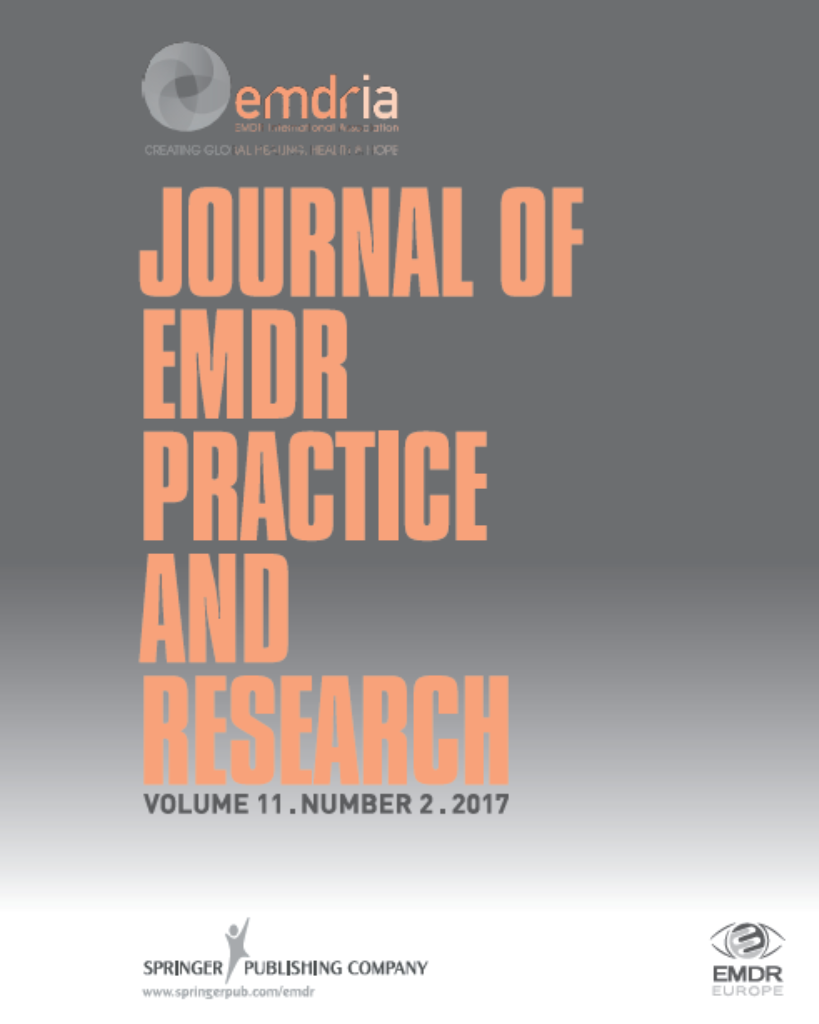The effectiveness of online eye movement desensitization and reprocessing 2.0 group protocol on post-traumatic stress disorders symptoms, depression, anxiety, and stress in individuals who have experienced a traffic accident: A randomized-controlled study
This RCT study examines the impact of EMDR 2.0 in group settings, and investigates the efficacy of this online EMDR 2.0 group protocol versus mhGAP on adults with history of traffic accidents.
Article Abstract
“Introduction: EMDR 2.0, an innovative approach rooted in the conventional Eye Movement Desensitization and Reprocessing (EMDR), has garnered attention due to its promising outcomes. The application of EMDR, whether it is EMDR or EMDR 2.0 protocol, in a group format, especially for conditions like Post-Traumatic Stress Disorder, will provide significant opportunities in terms of economic feasibility and accessibility, ultimately leading to widespread use. Building on the established effectiveness of EMDR 2.0 in individual applications, this study examines its impact in group settings. This protocol is designed to provide a structured framework for implementing EMDR 2.0 within group contexts, paving the way for a nuanced understanding of its potential benefits in collective therapeutic settings. This study aims to investigate the efficacy of the online EMDR 2.0 Group Protocol(EMDR 2.0 GP) versus Improving Mental Health Training for Primary Care Residents(mhGAP) on individuals with a history of traffic accidents in a controlled way.
Methods: In this randomized-controlled study sample includes volunteers who were involved in traffic accidents and were given the randomized online EMDR 2.0 GP and mhGAP Stress management module. The participants were given a sociodemographic data form, Depression Anxiety Stress 21 scale (DASS-21) and Impact of Event Scale-Revised (IES-R). Participants were evaluated with measurements before, after and “one month after the application.
Results: The mean age of the participants was 34.80(8.10) years and 88.0% (n=22) were female. The change in DASS-21 Anxiety (h2=0.136), Stress (h2=0.140), IES-R Avoidance (h2=0.134), Hyperarousal (h2=0.0148), Total (h2=0.223) scores of online EMDR 2.0 GP was determined to be statistically significant compared to the mhGAP group. However, no statistically significant difference was observed in DASS-21 Depression (h2=0.017), IES-R Intrusion(h2=0.094), scores between the two groups.
Discussion: The RCT of online EMDR 2.0 GP indicated that this newly developed protocol, when applied to groups, may be effective in reducing anxiety, stress, and traumatic symptoms among a non-clinical sample.
Clinical trial registration: https://clinicaltrials.gov/study/, identifier NCT05596903.”
—Description from publisher
Article Access
Open Access
Burak Yasar, A., Gündoğmuş, İ., Kubilay, D., Alban Tunca, G., Uygun, E., Zat Çiftçi, Z., & Kavakçı, Ö. (2025). The effectiveness of online eye movement desensitization and reprocessing 2.0 group protocol on post-traumatic stress disorders symptoms, depression, anxiety, and stress in individuals who have experienced a traffic accident: A randomized-controlled study. Frontiers in Psychiatry, 16: 1452206. Open access: https://doi.org/10.3389/fpsyt.2025.1452206
About the Journal
“Frontiers in Psychiatry is an interdisciplinary journal that focuses on translational and ‘bench-to-beside’ approaches to improve therapeutic options for mental illness and consequently to improve patient treatment outcomes.”
—Description from publisher
Date
May 8, 2025
Creator(s)
Alisan Burak Yasar, İbrahim Gündoğmuş, Derin Kubilay
Contributor(s)
Görkem Alban Tunca, Ersin Uygun, Zeynep Zat Çiftçi, Önder Kavakçı
Practice & Methods
Comparative Studies, Group, Telehealth
Extent
11 pages
Publisher
Frontiers in Psychiatry
Rights
Copyright: © 2025 This is an open-access article distributed under the terms of the Creative Commons Attribution License (CC BY).
APA Citation
Burak Yasar, A., Gündoğmuş, İ., Kubilay, D., Alban Tunca, G., Uygun, E., Zat Çiftçi, Z., & Kavakçı, Ö. (2025). The effectiveness of online eye movement desensitization and reprocessing 2.0 group protocol on post-traumatic stress disorders symptoms, depression, anxiety, and stress in individuals who have experienced a traffic accident: A randomized-controlled study. Frontiers in Psychiatry, 16: 1452206. Open access: https://doi.org/10.3389/fpsyt.2025.1452206
Audience
EMDR Therapists, Other Mental Health Professionals
Content Type
Article, Peer-Reviewed, RCT
Access Type
External Resource, Open Access





